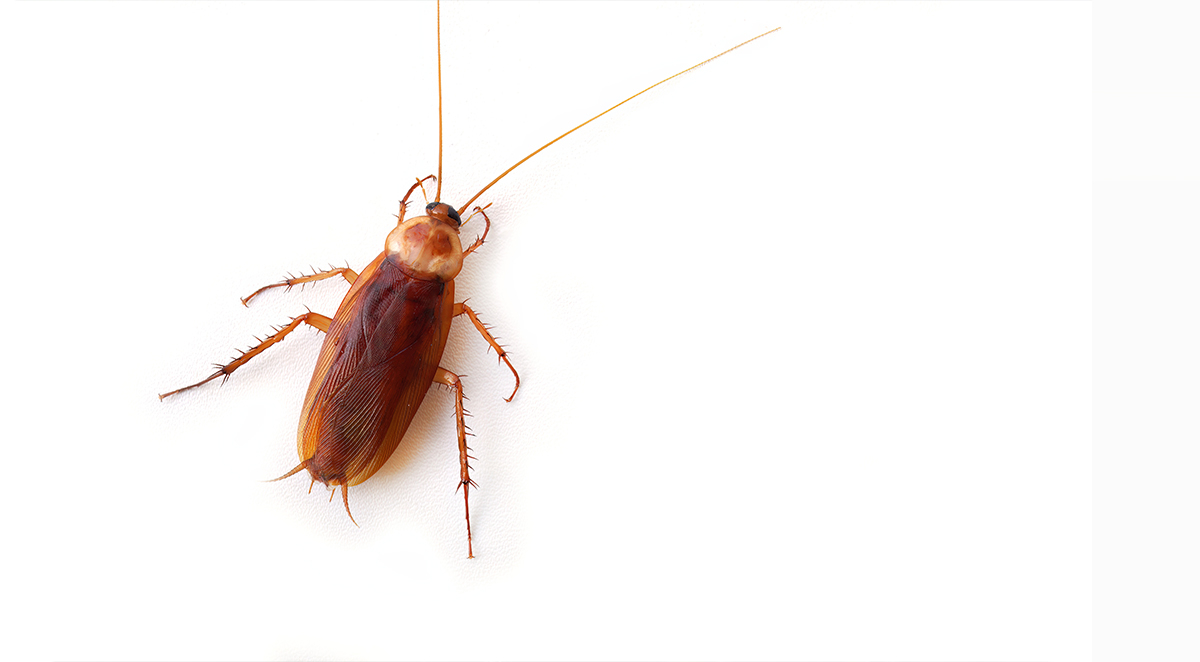Each property deserves the full attention of a property manager, at least if you want to be a reputable one, and sometimes that means getting your hands dirty when surprise infestations come up.
As a property manager, you are likely well aware of one of the most persistent and unwelcome guests in any residential or commercial building. The cockroach. These resilient pests can tarnish your property's reputation, trigger health concerns, and pose a significant challenge to both tenants and your bottom line.
Understanding The Cockroach
Before you can manage a cockroach infestation, you must have a sort of understanding of these nasty creatures. Cockroaches are ancient survivors who have adapted to various environments and can thrive in almost any condition. These pests are known for their tenacity and capacity to spread diseases. These diseases include:
- Campylobacteriosis.
- Cholera.
- Dysentery.
- Gastroenteritis.
- Giardia.
- Leprosy.
- Listeriosis.
- Salmonellosis.
Not a fun list, right?
The most common species of cockroaches found in properties around the US are the German cockroach, the American cockroach, and the Oriental cockroach. It is important to understand cockroach behavior as this is essential for effective management.
Cockroaches are nocturnal creatures, preferring to scavenge for food and water during the night. They are omnivorous, feeding on a wide variety of materials, including food crumbs, paper, glue, and even each other if necessary. They are also attracted to warmth, darkness, and moisture, which makes kitchens, bathrooms, and basements ideal hiding spots.
One of the most concerning aspects of cockroach infestations is their prolific reproduction. A single female cockroach can produce hundreds of offspring in her lifetime. German cockroaches, for instance, have a particularly fast reproductive cycle, with females producing egg cases (oothecae) every few weeks. This rapid reproduction rate can quickly escalate a small problem into a full-blown infestation.
The Problem With Cockroach Infestations
Cockroach infestations are not only unsightly but also pose serious health risks. These pests can transmit diseases, contaminate food, and trigger allergies and asthma in sensitive individuals. For property managers, a cockroach infestation can lead to tenant complaints, potential lease terminations, and costly pest control treatments.
To prevent these problems, it's crucial to adopt proactive measures and understand the principles of Integrated Pest Management.
Integrated Pest Management (IPM)
Integrated Pest Management is a holistic, environmentally friendly approach to pest control that focuses on long-term prevention and sustainability. Rather than relying solely on chemical treatments, IPM combines multiple strategies to manage cockroach infestations effectively. Here's a breakdown of the key components:
- Inspection and Monitoring: Start by identifying areas where cockroaches are most active. Common hiding spots include kitchens, bathrooms, basements, and dark, secluded areas. Regular inspections and monitoring are vital to detect infestations in their early stages.
- Prevention: Implementing preventative measures is crucial to reduce the risk of infestations. Seal cracks and crevices in walls and floors, fix plumbing leaks, and maintain a clean environment. Educate tenants on the importance of proper food storage and waste disposal.
- Sanitation: Cockroaches are attracted to food and water sources. Maintaining a clean and dry property is essential to deter them. Regular cleaning and proper waste disposal can go a long way in preventing infestations.
- Exclusion: Sealing entry points and using door sweeps can help keep cockroaches out of your property. Make sure windows and doors are properly sealed, and inspect for any gaps or openings.
- Non-Chemical Control: Implement non-chemical methods such as traps, baits, and physical removal to reduce cockroach populations. Sticky traps can help monitor the presence of cockroaches, while bait stations can be strategically placed to attract and kill them.
- Chemical Control: If a cockroach infestation persists, consider chemical treatments. However, always opt for low-impact, environmentally friendly pesticides and consult with a licensed pest control professional to apply them safely.
Managing cockroach infestations as a property manager can be a challenging endeavor, but by adopting an Integrated Pest Management approach, you can effectively reduce and prevent these pests. Protecting your property and the health and comfort of your tenants is a top priority.
Regular inspections, preventive measures, and a commitment to sanitation and non-chemical control methods are the keys to success.
Remember that cockroach infestations are best addressed in their early stages. Prompt action, along with the implementation of an IPM program, will ensure that your property remains a welcoming and pest-free environment for all its occupants.
Pest Control For Property Managers With Rid-A-Bug
At Rid-A-Bug, our unwavering commitment revolves around delivering top-tier pest control services within the industry. In a world where eco-conscious practices are gaining traction, we recognize the paramount importance of incorporating environmentally friendly pest control solutions right here in North Carolina.
For over five decades, Rid-A-Bug Exterminating has held its position as the trusted authority in addressing pest and wildlife challenges. Our journey, which began in 1972, has seen us consistently evolve towards adopting LEED Certified Treatments.
These treatments prioritize Integrated Pest Management (IPM) and non-chemical interventions to effectively tackle pest-related issues while upholding the well-being of our environment, both within and outside your residence.
Should you find yourself grappling with pest or wildlife predicaments, allow us to provide our expertise. Reach out to us at 1-800-682-5901 or take advantage of our convenient online contact form. Our service area is extensive, and we are proud to offer flexible weekend and evening hours, ensuring that we can promptly attend to your needs to safeguard your home and well-being from potential harm.

